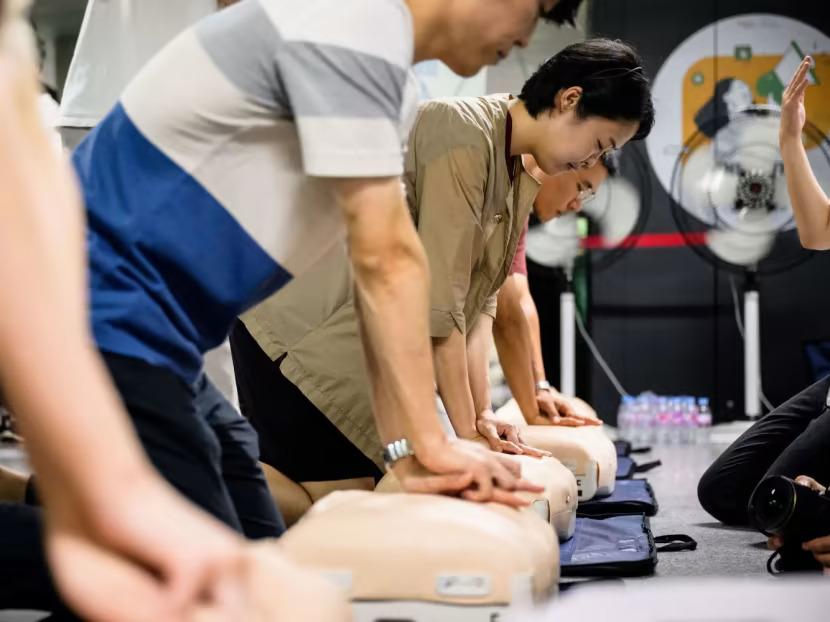Bystanders are less likely to give life-saving CPR to women having a cardiac arrest in public than men, leading to more women dying from the common health emergency, researchers said Monday.
Cardiopulmonary resuscitation (CPR) combines mouth-to-mouth breathing and chest compressions to pump blood to the brain of people whose hearts have stopped beating, potentially staving off death until medical help arrives.
In research to be presented at a medical conference in Spain this week, but which has not yet been peer-reviewed, a team of Canadian doctors sought to understand how bystanders administer the procedure differently to men and women.
They looked at records of cardiac arrests that took place outside of hospital in the United States and Canada between 2005 and 2015, which included nearly 40,000 patients.
Overall, 54 percent of the patients received CPR from a bystander, the research said.
For cardiac arrests in a public place, such as in the street, 61 percent of women were given CPR by a bystander -- compared to 68 percent of men.
Alexis Cournoyer, an emergency physician at the Hopital du Sacre-Coeur de Montreal who conducted the research, told AFP that this gap "increases women's mortality following a cardiac arrest -- that's for sure".
Cardiac arrests are a leading cause of death, with more than 350,000 occurring in the US alone every year, according to the American Heart Association.
Only around 10 percent of people who have a sudden cardiac arrest outside of a hospital survive, research has shown.
The researchers sought to find a reason for the gender gap.
One theory was that bystanders in public could be uncomfortable touching a women's breast without consent, Cournoyer said.
The researchers looked into whether age could play a role, he added.
But it did not -- women were less likely to receive CPR than men from a bystander regardless of their age, the data showed.
Cournoyer said another possibility was a "barrier of recognition" for women having a cardiac arrest, which is often represented as something that happens only to men.
Before a cardiac arrest, men are more likely to have chest pain -- a commonly depicted symptom in media -- while women are more likely to experience shortness of breath, according to a study published last month in Lancet Digital Health.
Cournoyer said further research was required to shed light on the gap between men and women, in particular involving data on the gender of those performing CPR.
The research, which the team plans to publish in a peer-reviewed journal, will be presented at the European Emergency Medicine Congress 2023 in Barcelona.





















































